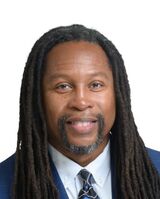
Like many White and older psychologists, he had been trained to understand psychology as a color-blind scientific discipline. For him, there could not possibly be a Black psychology because he had never learned about it in his training, and had presumably never read any articles from the Journal of Black Psychology.
Fast forward many years later, and I was having another conversation at a different university with African American students. They were upset because they received an email from their White Department Chair that was a response to their request to receive departmental support for the Association of Black Psychologists’ student organization.
The Chair responded by saying that there were very few faculty who actually study ethnicity, race, or cultural issues in the department because these issues were not central in the field of psychology. The Chair suggested that much better research on these issues existed in sociology, education, and African and African Diaspora Studies. Finally, the Chair emphasized that for him, diversity should be reflected by the faculty, but not in what the discipline should study.
It is experiences like these, along with the many stories I could share regarding my time as Editor-in-Chief of the Journal of Black Psychology—where I fought to promote and defend the integrity of Black psychology as a discipline—that have led to the focus of this blog.
Black psychology was born from the struggle of Black psychologists who were constantly exposed to messages of Black deficiency, pathology, and inferiority. When the “father of Black psychology” Joseph White wrote his seminal piece “Toward a Black Psychology” in Ebony magazine, it was the first article that articulated an authentic, non-deficit-based psychology for Black people.
The struggle of Black psychology is very much the struggle of Black people. The lived experiences of Black people are reflected in the many songs and cultural and social movements produced by Black people. In many ways, the current Black Lives Matter social movement builds upon the Black is Beautiful cultural movement and James Brown’s timeless song “Say it Loud, I’m Black and I’m Proud.”
There is a synergy between the songs and social and cultural movements and Black Psychology. James Brown singing “Say it Loud, I’m Black and I’m Proud” and the Black is Beautiful cultural movement provided the context for Black psychologists to challenge Eurocentric psychology’s research focus on the supposed phenomenon of White preference in Blacks and self-hatred.
White psychologists assumed that the weight of racism had damaged the personality and self-esteem of Black people to the point where Black people suffered from self-hatred and harbored an unconscious preference for White people. This idea became part of psychological conventional wisdom through the book The Mark of Oppression, written by two White psychoanalysts, Abram Kardiner and Lionel Ovesey.
In this book, the authors stated, “Because his own culture was destroyed, the Negro was forced to accept the white man as his ideal… The self-hatred of the Negro is the best testimony we can offer in evidence; he hates himself as the white man hates him (or as he thinks the white man hates him).” Black psychologists such as Curtis Banks and Joseph Baldwin (a.k.a., Kobi Kambon) challenged these deficit-based, Eurocentric ideas and advocated for more culturally relevant and empirically valid approaches to the study of Black people.
Similarly, the efforts of Black psychologists such as Joseph White to describe a psychology of Black behavior and culture in nondeficit terms can be credited with helping to usher in the multicultural psychology movement in psychology.
With the introduction of this blog, I hope to validate Black psychology and use this platform to feature thoughtful commentary on all aspects of the Black experience. I hope that all students, but especially Black students, will learn that Black psychology is a distinct disciplinary field of psychology. In doing so, I hope to use the insights of Black psychology as a way to better understand the lived experiences of Black people.

Be the first to comment